Times are changing… and so is Smart. The brand, famous in Europe for its micro-urban cars that continue to be very successful in big cities, launches its first SUV, the #1.
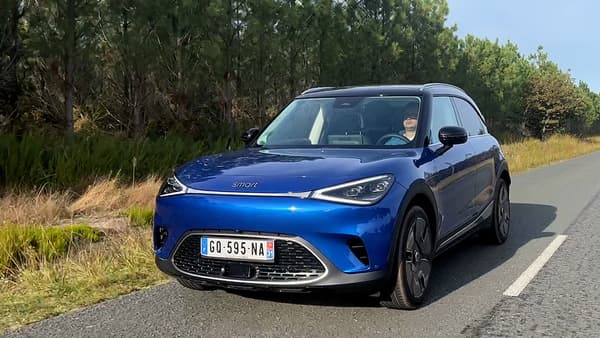
A new example of these manufacturers giving in to the fashion of (too) large vehicles compared to their actual use? While some ask for smaller and lighter cars to respond to the urgency of a cleaner vehicle fleet, we would even be on the verge of scandal. As is often the case, the matter is a little more complex, no offense to the “anti-SUV primaries.”
A smart brand now German-Chinese
An element of context now: since 2022, the Smart brand belongs to Mercedes, its historical shareholder, but now in a joint venture in equal parts with the Chinese giant Geely. This first SUV is also produced in China, where it began its journey last year. A new territory for Smart, which also explains this choice to offer this 100% electric SUV format to start this renewal.
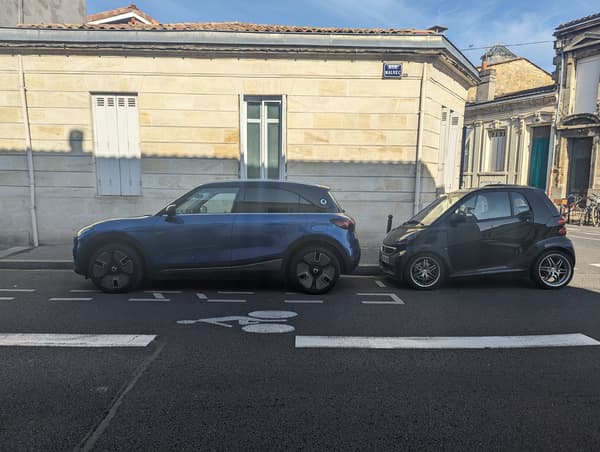
A compact SUV, 4.27 meters long, or 1.58 meters longer than the latest Smart Fortwo. In these dimensions, this No. 1 is a direct competitor of the DS3 e-Tense, the Opel Mokka-e, the Kia e-Soul or even a Peugeot e-2008.
Smart’s first SUV shows a fairly modern design, with this light strip that connects the headlights and taillights. All this with an aerodynamic side, at the height of the wheels or the door handles flush with the body.
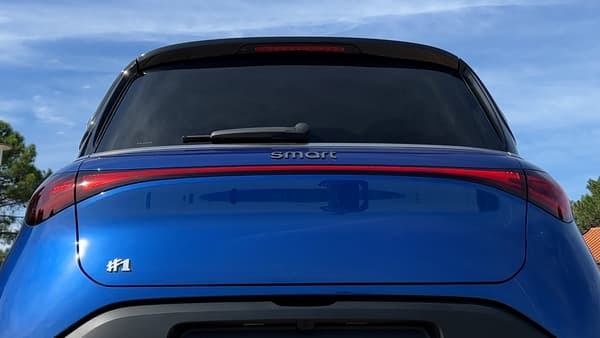
A vehicle that is also designed to be a family vehicle, with 5 seats, with a front trunk of 313 liters, complemented by a very small space (but which has the merit of existing) under the front hood, of 15 liters.
Inside, the choice of materials and colors clearly gives a premium appearance to this cabin. A luxurious impression reinforced by the good-sized 12.8-inch touch screen, which offers a very good definition and response ratio to the touch. With the plus of a specially designed graphic environment, with original and colorful animations, rare enough to stand out in the current automotive offering.
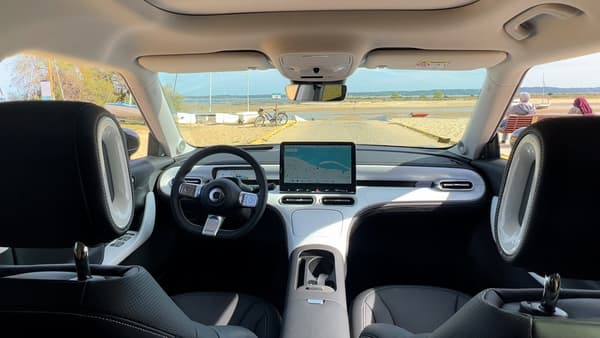
Special mention for the little fox that acts as a virtual assistant and also appears in most menus. For example, the airflow management screen, where the animal sitting in a seat faces a wind turbine that blows increasingly stronger depending on the ventilation level.
On the road, this Smart #1 confirms this good first impression, especially with good acoustic insulation and a feeling of comfort. In the first two equipment levels “Pro+” and “Premium” we find a rear motor with a power of 200 kW or 270 horsepower. A second front engine completes the “Brabus” version that develops 315 horsepower, for an announced 0 to 100 km/h in 3.9 seconds, compared to 6.7 seconds for the single-engine finishes.
Up to 440 km of autonomy
A single size battery, 66 kWh, or 440 km of autonomy announced in our test model in “Premium” finish. An autonomy that seems realistic with consumption below 15 kWh during our test of just over 200 km, with trips on the highway, small roads and the city.
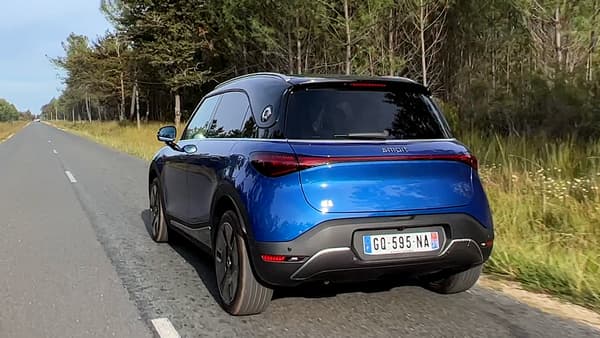
On the load side, #1 can receive 150 kW from a direct current terminal, or the possibility of going from 10 to 80% in 30 minutes. On an AC terminal, the on-board charger goes from 7.4 to 22 kW in our “Premium” finish (from more than 7 hours to about 3 hours to go from 10 to 80%).
There are also numerous driving aids, such as the adaptive cruise control and road monitoring duo and the parking aid with 360° camera.
A disappearing ecological bonus
With these assets, #1 remains quite well positioned in terms of price. Its initial price is 40,315 euros, that is, a little more than 35,000 euros with the ecological bonus of 5,000 euros… a bonus that this Smart #1 runs the risk of losing starting December 15 with the application of the “environmental score” in France, which would de facto deprive most models produced in China of this important subsidy.
Our test model has a starting price of 43,815 euros (without bonus), with the addition, in particular, of the heat pump, faster AC charging of 22 KW and directional headlights with adaptive high beams. Count 47,800 euros for the Brabus version with the possibility of obtaining a discount that allows you to lower the current bonus limit of 47,000 euros.
It should be noted that the electric Smart Fortwo will continue to be produced until the end of 2024 at the Hambach factory in Moselle. For the new Smart, the next steps: an SUV coupe, No. 3, presented at the Munich Motor Show and a potential future No. 2, which would replace the Fortwo in this niche of micro-urban cars.
Source: BFM TV

